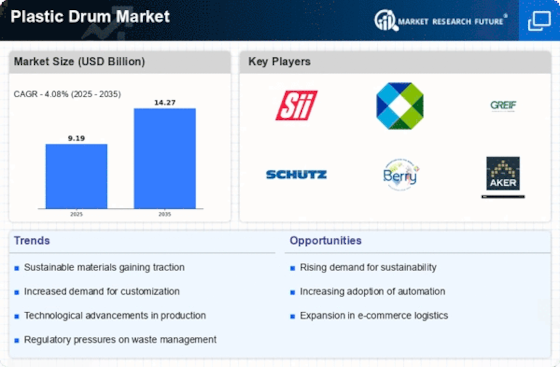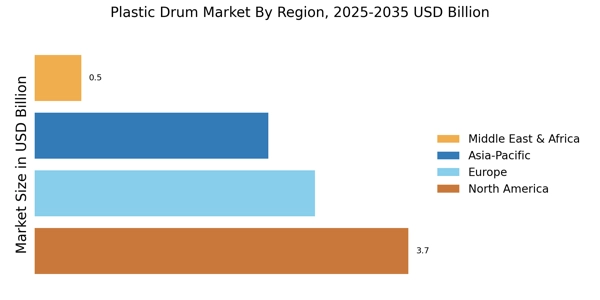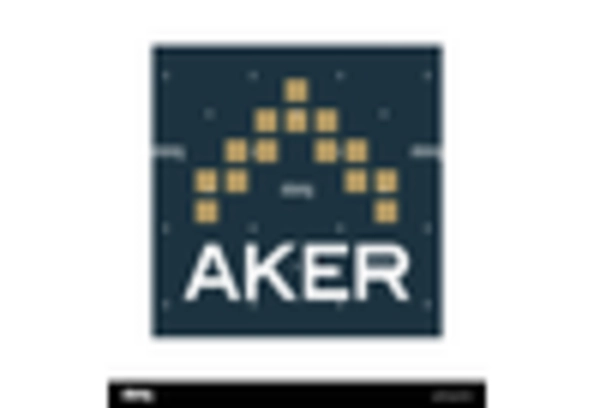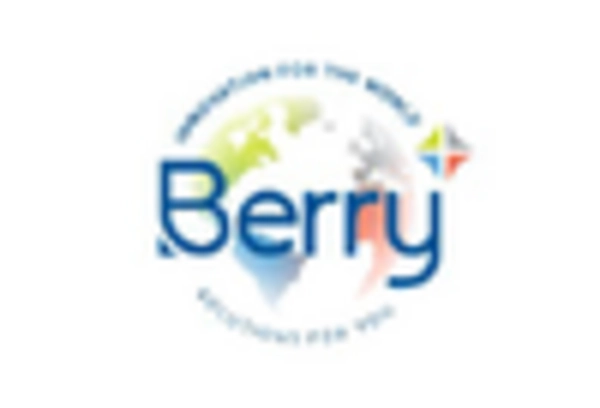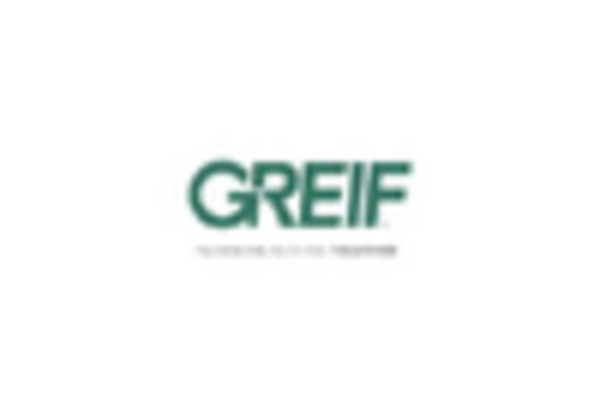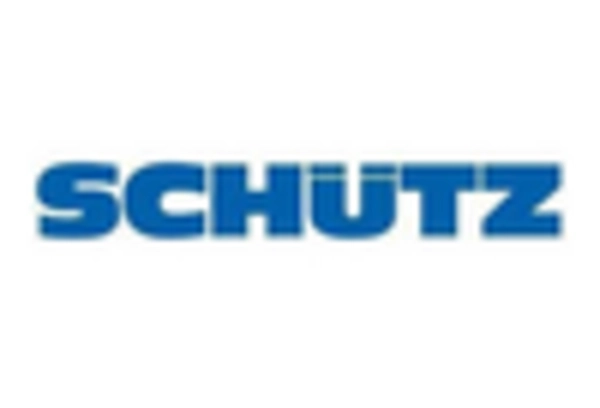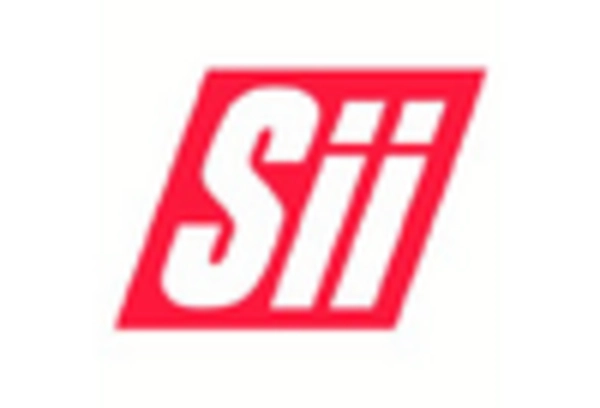Rising Demand for Eco-Friendly Packaging
The increasing emphasis on sustainability is driving the Plastic Drum Market towards eco-friendly packaging solutions. As consumers and businesses alike become more environmentally conscious, the demand for recyclable and reusable plastic drums is on the rise. This shift is evident in various sectors, including food and beverage, chemicals, and pharmaceuticals, where companies are seeking sustainable alternatives to traditional packaging. According to recent data, the market for eco-friendly packaging is projected to grow significantly, with plastic drums playing a crucial role in this transition. The Plastic Drum Market is likely to benefit from this trend, as manufacturers innovate to create products that meet both regulatory standards and consumer expectations for sustainability.
Technological Innovations in Manufacturing
Technological advancements in manufacturing processes are significantly influencing the Plastic Drum Market. Innovations such as blow molding and injection molding have enhanced the efficiency and quality of plastic drum production. These technologies allow for the creation of more durable and lightweight products, catering to the evolving needs of various industries. Furthermore, automation in production lines is reducing costs and improving output, which is essential for meeting the growing demand. As manufacturers adopt these technologies, the Plastic Drum Market is likely to see a surge in competitive offerings, ultimately benefiting consumers through improved product quality and pricing.
Expansion of E-commerce and Logistics Sectors
The rapid expansion of e-commerce and logistics sectors is contributing to the growth of the Plastic Drum Market. As online shopping continues to gain traction, the need for efficient packaging solutions for shipping and storage is paramount. Plastic drums offer a robust and lightweight option for transporting goods, particularly in bulk. The logistics industry is increasingly relying on plastic drums for their ability to protect products during transit and storage. Recent trends indicate that the e-commerce sector is projected to grow substantially, which will likely drive demand for plastic drums. Consequently, the Plastic Drum Market stands to benefit from this upward trajectory, as companies seek reliable packaging solutions to support their operations.
Increasing Regulations on Hazardous Materials
The implementation of stringent regulations regarding the storage and transportation of hazardous materials is a significant driver for the Plastic Drum Market. Governments and regulatory bodies are enforcing guidelines that require safe and compliant packaging solutions for hazardous substances. Plastic drums, known for their durability and safety features, are increasingly being adopted to meet these regulatory requirements. This trend is particularly evident in industries such as chemicals, oil and gas, and waste management. As compliance becomes more critical, the demand for high-quality plastic drums is expected to rise, thereby propelling the growth of the Plastic Drum Market.
Growth in Chemical and Pharmaceutical Industries
The expansion of the chemical and pharmaceutical industries is a key driver for the Plastic Drum Market. These sectors require reliable and safe storage solutions for hazardous and non-hazardous materials, which plastic drums provide. The versatility of plastic drums, including their resistance to corrosion and ability to withstand various chemicals, makes them an ideal choice for these industries. Recent statistics indicate that the chemical manufacturing sector is expected to witness steady growth, which in turn will bolster the demand for plastic drums. As companies in these industries continue to scale operations, the Plastic Drum Market is poised to experience increased sales and innovation in product offerings.


